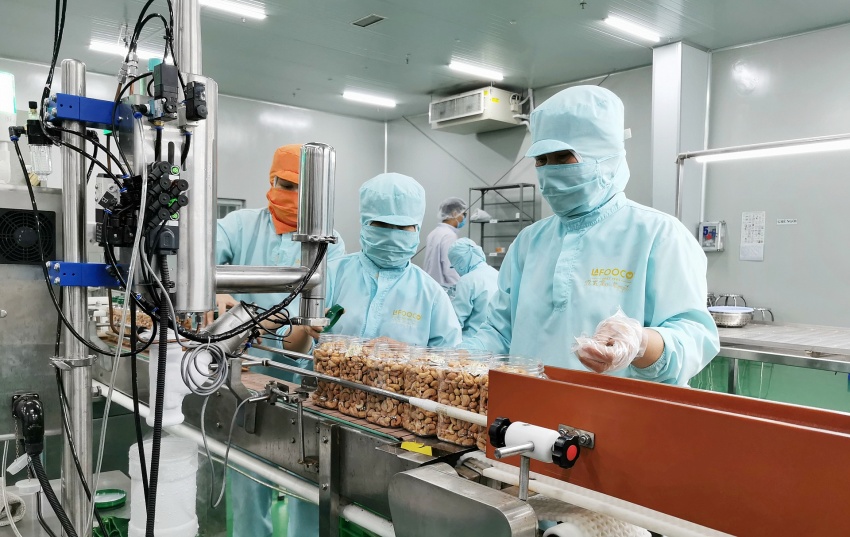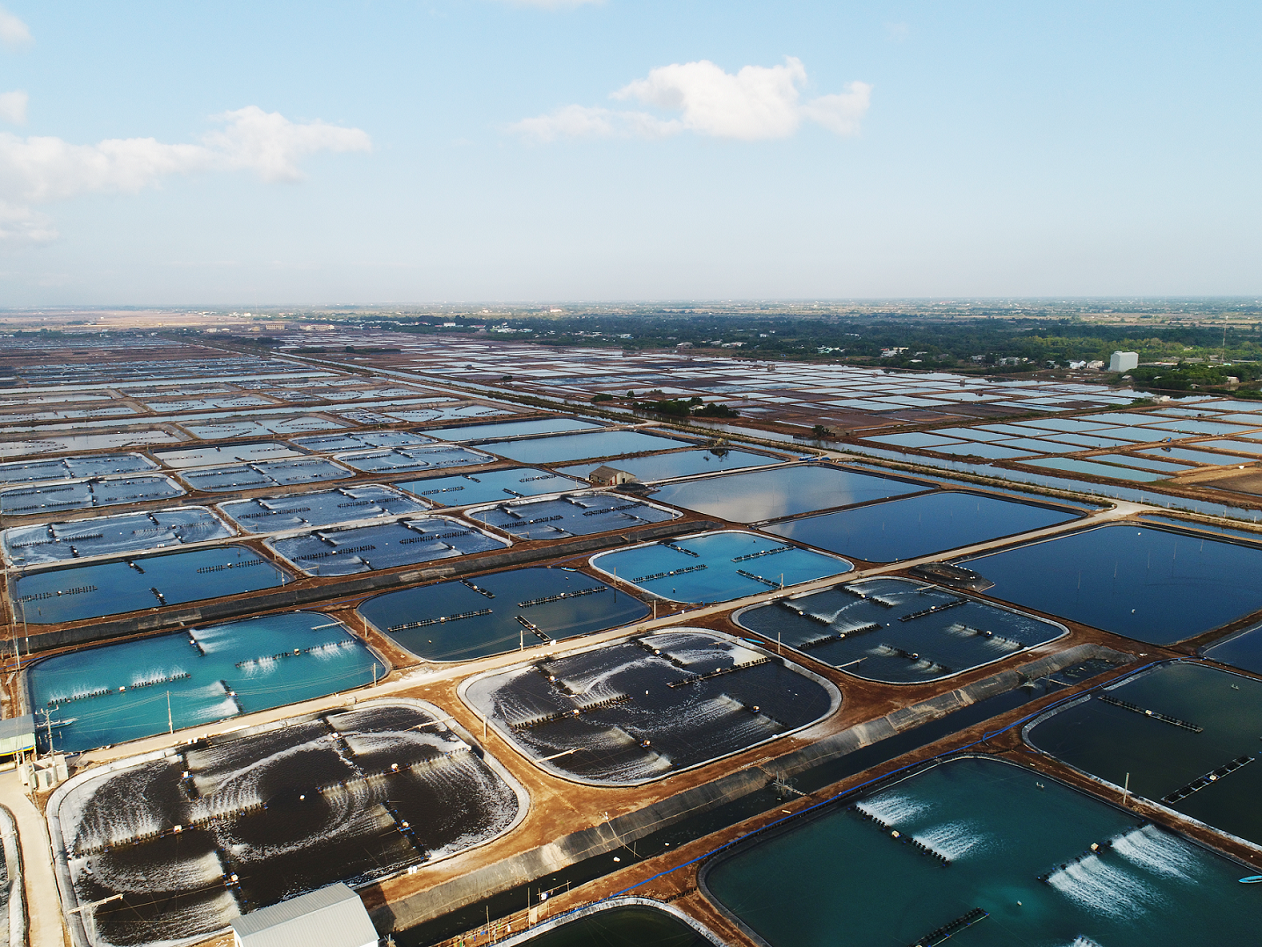PAN Group strives to expand ecosystem through M&A
 |
| Nguyen Thi Tra My, CEO of The PAN Group |
How would you evaluate the potential for mergers and acquisitions (M&A) in the agricultural sector? What are the advantages of this investment format in the field?
M&A activity in agriculture will continue to be lively as stakeholders are now aiming to develop large-scale production aided by technology and automation. The country’s agriculture is still characterised by small, fragmented, and disconnected production, resulting in low margins and productivity. Many farmers are leaving the sector or change the land use purpose of their land.
Thus, land ownership is being concentrated and production areas are being joined despite the numerous legal difficulties in the Land Law. Numerous households are joining to establish modern co-operatives to cultivate more effectively on a larger scale. These changes are a good premise for M&A.
Along with helping enterprises accelerate expansion, agricultural companies inherit numerous advantages, including large land banks, acquiring known and respected brands. Unlike in other sectors, the training and development of human resources in agriculture needs more patience, perseverance, and can take several years. For example, it takes dozens of years to train an agricultural engineer since he graduates from a university and it takes over 20 years to study new plant varieties which can grow in particular weather conditions and provide better yields.
How does The PAN Group drive an M&A deal to success after completing the deal itself?
One of the challenges of a merger is how to create harmony between the two parties. While it is difficult to buy a company, managing it after the deal is even more difficult as a lot of thought and effort needs to go into setting shared targets and creating new added values.
Once The PAN Group acquires a majority interest, we try not to make major changes to the human resources of the partner company. Instead, we use our financial and management capacity in collaboration with our network of international and domestic partners to improve management and bring out the full potential of our new partner.
Meanwhile, sellers are leading companies in their sectors with long experience, established market presence, and existing capacity to develop products. Thus, when they are merged into the PAN ecosystem, we will give them all the support to reinforce these strengths and develop synergic values with our other members.
We also take special care of the human and cultural values involved in cooperation. We do not only acquire leading companies, our partners must be able to share our vision and spirit and be willing to work with us toward a common goal, which is to benefit both of us and the country’s agricultural sector. Thus, despite having dozens of different members, we all make an effort to build a shared corporate culture while maintaining our individual identity.
 |
| Cashew nuts processing line at PAN Group |
How has the COVID-19 pandemic impacted the group’s M&A deals?
The COVID-19 pandemic is certainly a barrier to M&A, as it makes it more difficult for us to evaluate target partners and hampers the divestment of state-owned enterprises (SOEs). Besides, during a crisis, enterprises tend to focus on stabilising operations and put growth and expansion plans on the backburner. Thus, the pandemic has made it more difficult to find partners, raise capital, and expand operations for buyers and sellers.
We believe that 2022 will be a good year for M&A activities because enterprises in financial difficulty will look for external sources to maintain operations while other enterprises with pent-up capital will be looking to implement M&A deals.
 |
| Shrimp ponds managed by The PAN Group |
What legal and regulatory changes do you think would be necessary to promote M&A activities?
Last month, the State Bank of Vietnam issued Circular No.16/2021/TT-NHNN which regulates the purchase and sale of corporate bonds by credit institutions and branches of foreign banks. Accordingly, credit institutions will not be allowed to purchase bonds for M&A deals.
The regulation will make it harder for enterprises to mobilise capital, which is a concern. At present, M&A transactions are almost always funded through bank loans, investment funds, or from the proceeds of share or bond issuance.
The regulation will be a big barrier for enterprises looking to mobilise capital for M&A transactions, while the circular does not stipulate any limit on other risky investment lines. When the circular comes into effect, a lot of enterprises will have to mobilise capital by issuing shares, which is less effective. They may also look for loopholes or ways to go around the regulation, which will just cause more difficulties in monitoring transactions.
Besides, SOE divestment remains slow. According to the government’s plan, in 2017-2020, 128 SOEs were scheduled for equitisation, but 89 had not been equitised by the end of the period. During the past two years, the COVID-19 pandemic made the divestment process even slower.
It is necessary to adjust the regulations to accelerate equitisation, such as the regulations on valuing land prices so that it is compatible with market realities to prevent the loss of state capital and at the same time remove obstacles. It is a complicated issue and lacks a clear legal corridor. Many SOEs hold great land banks, including many golden land plots. Meanwhile, there are still many problems during the determination of land price during equitisation which need to be resolved.
In July, the prime minister promulgated Decision No.22/2021/QD-TTg on the criteria for classifying wholly-state-owned enterprises and SOEs undergoing restructuring in 2021-2025. According to the decision, the government will approve the equitisation plans for companies at first tier, including particular companies or parent companies. Regarding the companies at the second and third tiers (which are groups of subsidiaries of corporations), their parent companies will have the right to proactively build equitisation plans for their subsidiaries. These regulations make corporations proactive and flexible in restructuring their subsidiaries, which will contribute to accelerating the equitisation process at SOEs next time.
What the stars mean:
★ Poor ★ ★ Promising ★★★ Good ★★★★ Very good ★★★★★ Exceptional
Related Contents
Latest News
More News
- VinaCapital launches Vietnam's first two strategic-beta ETFs (February 26, 2026 | 09:00)
- PM sets five key tasks to accelerate sci-tech development (February 26, 2026 | 08:00)
- PM outlines new tasks for healthcare sector (February 25, 2026 | 16:00)
- Citi report finds global trade transformed by tariffs and AI (February 25, 2026 | 10:49)
- Vietnam sets ambitious dairy growth targets (February 24, 2026 | 18:00)
- Vietnam, New Zealand seek level-up in ties (February 19, 2026 | 18:06)
- Untapped potential in relations with Indonesia (February 19, 2026 | 17:56)
- German strengths match Vietnamese aspirations (February 19, 2026 | 17:40)
- Vietnam’s pivotal year for advancing sustainability (February 19, 2026 | 08:44)
- Strengthening the core role of industry and trade (February 19, 2026 | 08:35)

 Tag:
Tag:


















 Mobile Version
Mobile Version